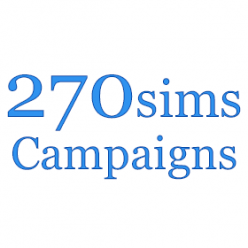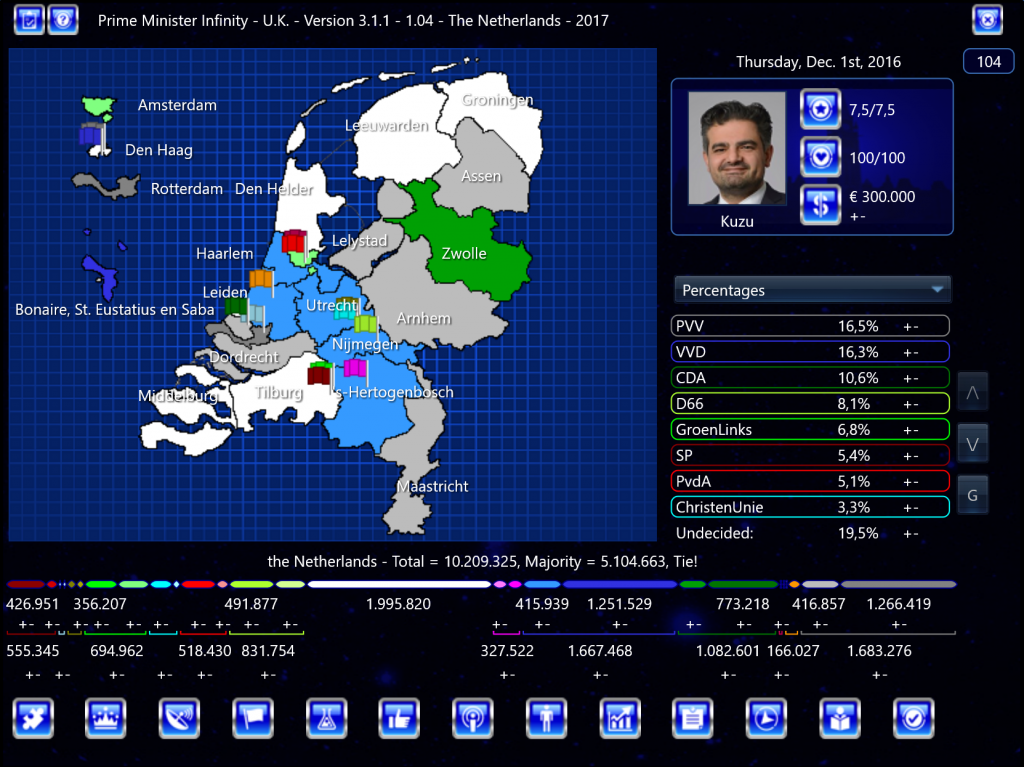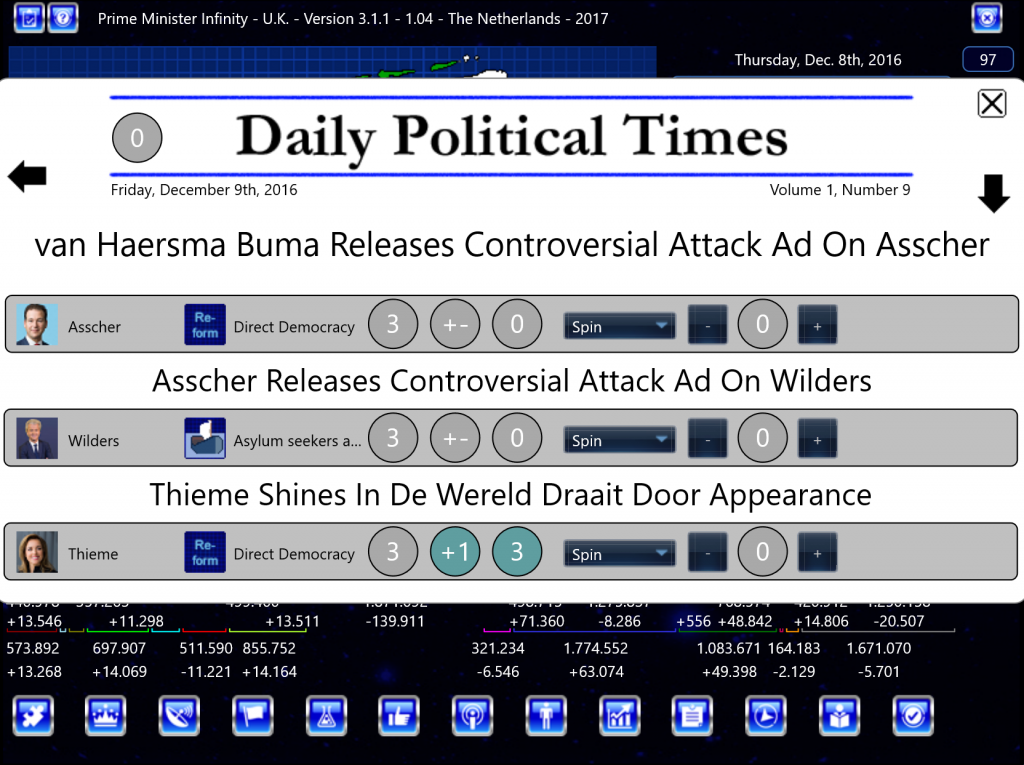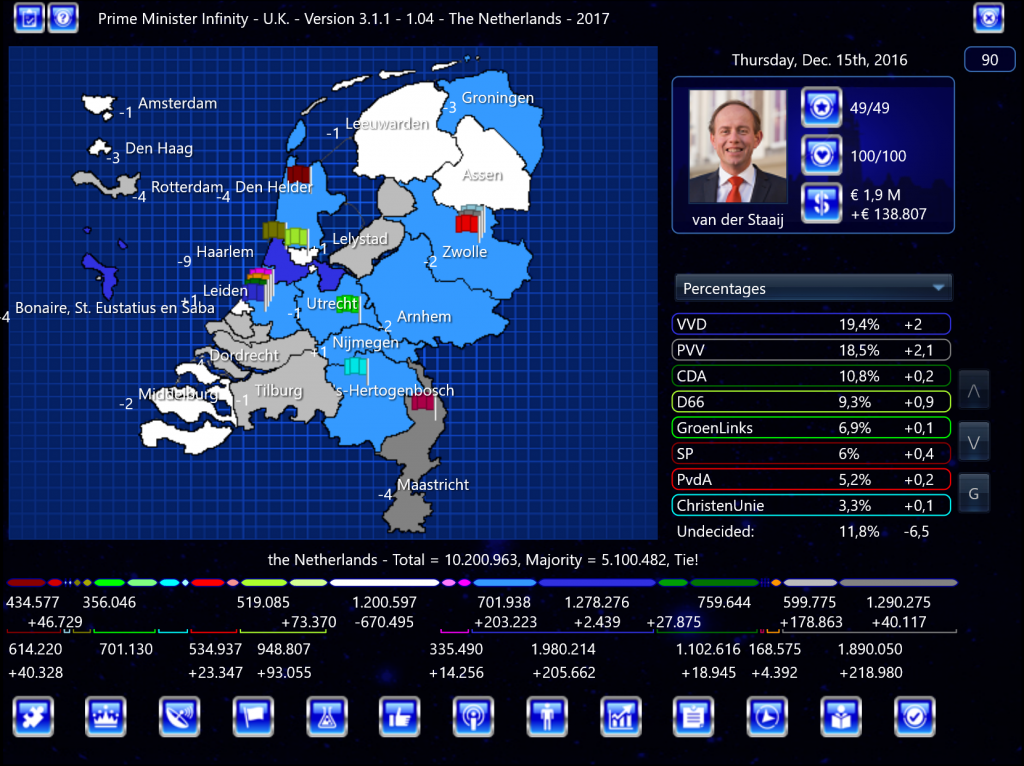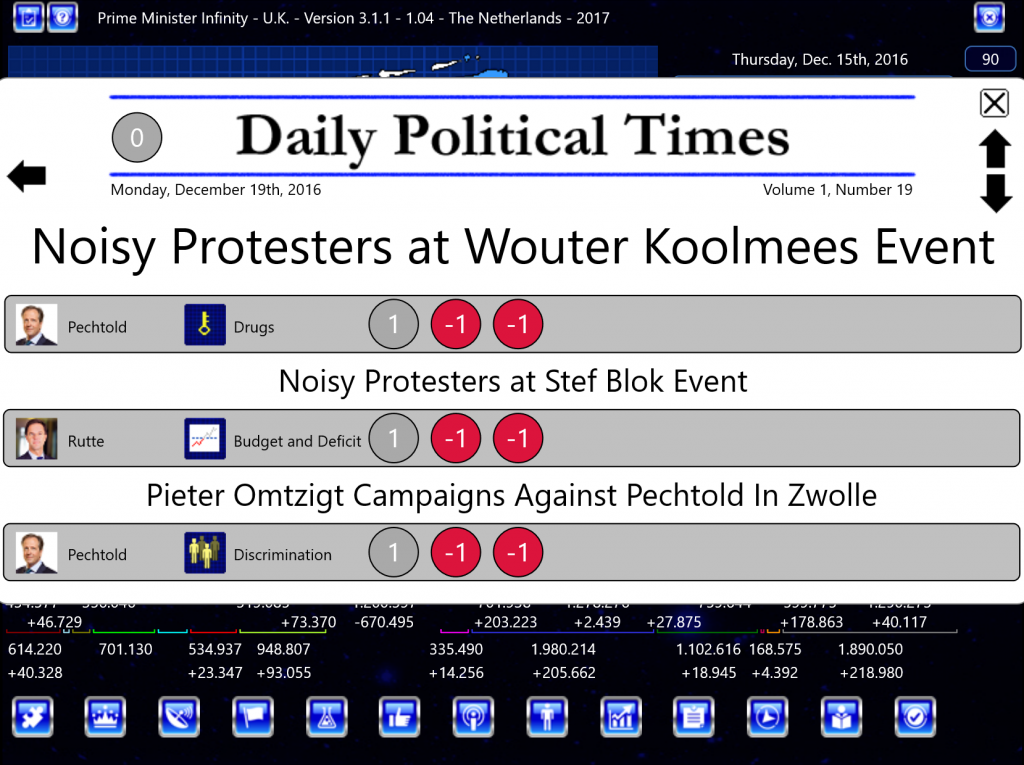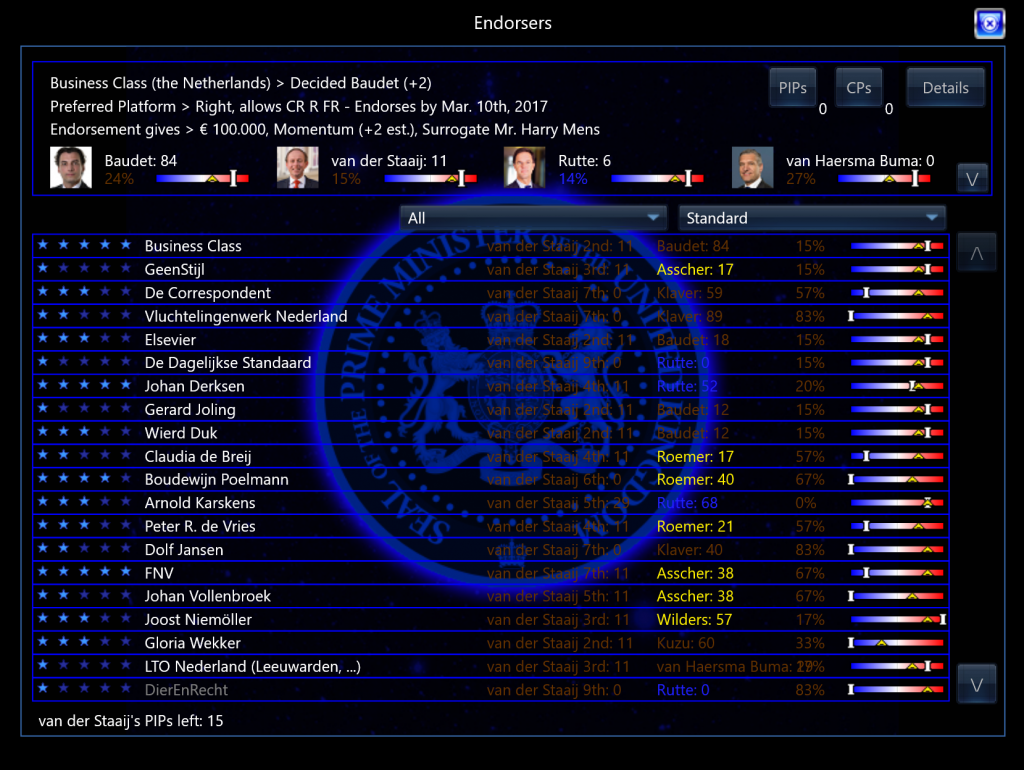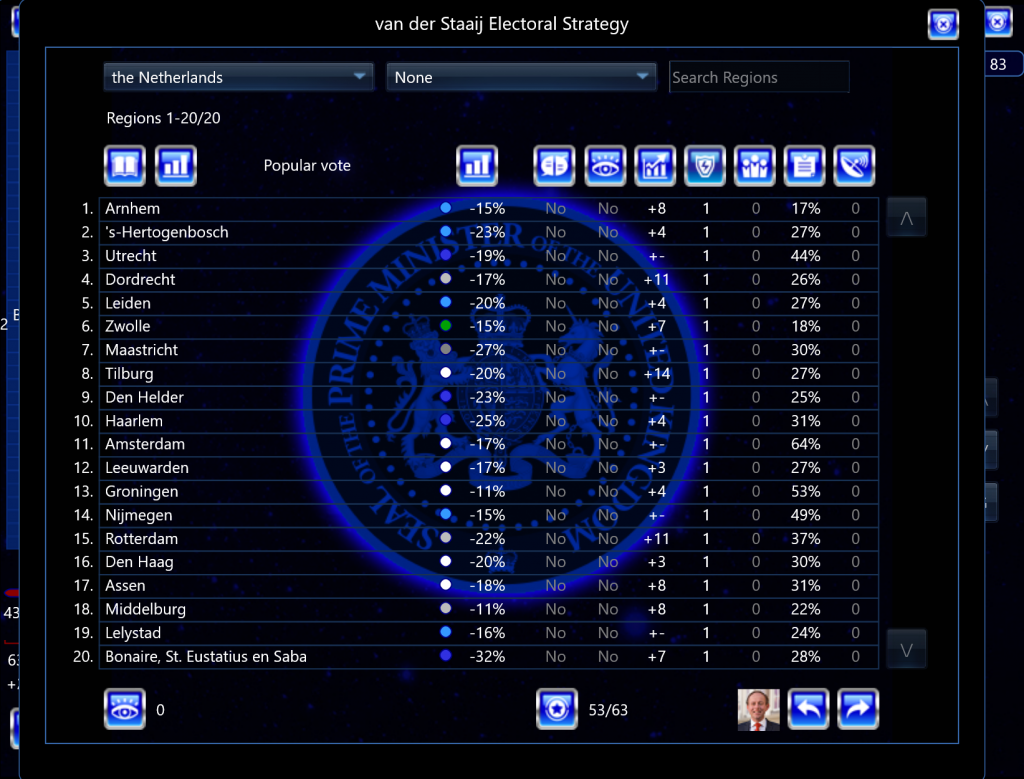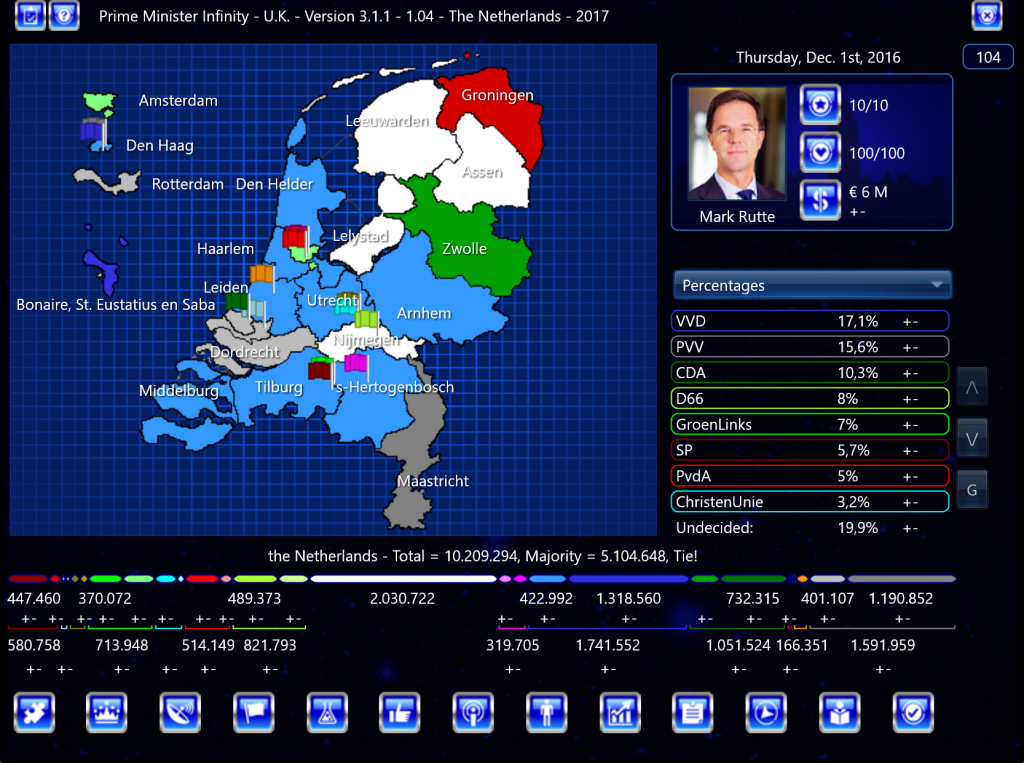
The second Rutte cabinet, the first government to serve a full term since 2002, was formed after two rivaling and ideologically opposite parties joined each other in a coalition and in the proces got very unpopular in the polls. The election is setting up to be the closest ever with seven parties a serious contender for the win. This election also saw the highest number of participating parties in a general election ever. Will you be able to secure parliamentary seats with one of the newcomers or get a third victory in a row for Rutte’s liberal VVD? Will you be able to make populist Geert Wilder’s PVV the largest party for the first time or make the grand old parties of CDA or PvdA bounce back into power? Will you form the backbone in the next Dutch government? Prove it in this scenario.
Scenario Features include:
- Dutch political parties: all parties that took part in most of the electoral districts. Parties that ended up taking seats are on default, parties that didn’t are off.
- VVD: People’s Party for Freedom and Democracy (on)
- PvdA: Labour Party (on)
- PVV: Party for Freedom (on)
- SP: Socialist Party (on)
- CDA: Christian Democratic Appeal (on)
- D66: Democrats 66 (on)
- ChristenUnie: Christian Union (on)
- GroenLinks: GreenLeft (on)
- SGP: Reformed Political Party (on)
- PvdD: Party for the Animals (on)
- 50PLUS (on)
- Entrepeneurs Party (off)
- VNL: For the Netherlands (off)
- DENK (on)
- New Ways (off)
- FvD: Forum for Democracy (on)
- The Civil Movement (off)
- Free-Minded Party (off)
- GeenPeil (off)
- Pirate Party (off)
- Article 1 (off)
- Non-Voters (off)
- Libertarian Party (off)
- Local Represented (off)
- JESUS LIVES (off)
- Dutch political leaders: Most larger parties and some of the smaller ones have multiple possible party leaders. The ones that had leader elections got the runners-up as a choice for leader for that party.
- Specific Dutch endorsers: From well-known ones like “De Telegraaf”, the largest circulated newspaper, to NGO’s like “Vluchtelingenwerk Nederland” to individuals from journalists like Wierd Duk, tv-personalities like Johan Derksen to activists like Johan Vollenbroek.
- Issues and party platforms specific for this election like “direct democracy”, “asylum seekers and immigration” and “discrimination laws”
- Events that had an impact on the elections. From the Geert Wilders court case in December to the Turkish minister visiting Rotterdam in March.
- Map based on the Dutch “kieskring”-system. These electoral districts are mostly coinciding with provincial borders but some are only a specific city or region. A new party has to apply in each “kieskring” independently and parties have the opportunity to use different electoral lists in each “kieskring”.
- And much more!
